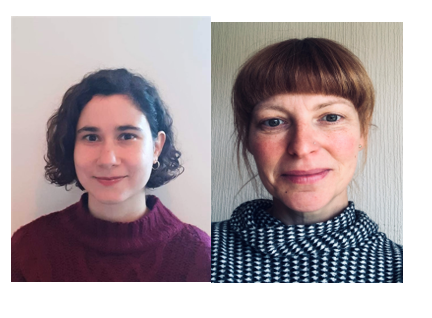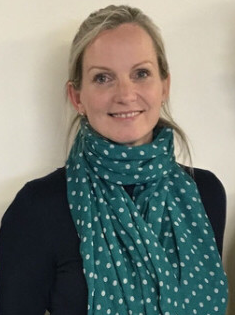Guest Blog

ENRICHEnabling Research in Care Homes
GUEST BLOG
Welcome to the ENRICH guest blog
Read the real-life experiences of people involved in care home research.
Anyone with a story or advice they'd like to share is encouraged to make contact using the contact us page.
Read about current news and developments for care homes research in the new posts section.
How to ‘COMMIT’ to mouth care minutes? What helps support mouth care for older people living in care homes
Magda Jordão is a Research Fellow working with NICHE-Leeds (School of Healthcare, University of Leeds), with a particular interest in promoting successful ageing and improving care for older people. Julia Csikar is a Lecturer in Dental Public Health (School of Dentistry, University of Leeds), with a particular interest in oral health inequalities and their impact on disadvantaged people/communities.
Keeping our mouths healthy is important, this is particularly the case as we age. There is a challenge for older people living in care homes as they may need assistance with this aspect of personal care. There are many reasons why mouth care may not receive the time and attention that it should in this context. We know that there is a gap between what should be done and what happens in the real world. So, what helps support older people with mouth care in care homes? And what are the challenges? Is there something missing in the way we think about this issue? In this blog, we present the preliminary results of the COMMIT study (Caring Optimally: promoting effective Mouth MInuTes in care homes), where we are addressing these questions.
Measuring what really matters: the development of a core outcome set for interventions to prevent COVID-19 in care homes
Dr Victoria Shepherd is a Research Fellow (Nurse) at the Centre for Trials Research at Cardiff University
In this blog I discuss the ‘COS COVID PCARE’ study which aimed to reach agreement on the most important outcomes to measure when evaluating different interventions to prevent COVID-19 in care homes. This core outcome set (or ‘COS’) will enable researchers to compare which interventions are most effective at preventing COVID-19, and to ensure that future trials in this area focus on what matters most to care home residents and those who care for them.
Introducing the D-DRINC Study – how do people living with dementia drink in care homes?
Ellice Parkinson is a 2nd year PhD researcher at the University of East Anglia. Ellice’s mixed-methods PhD project aims to better understand drinking in older people. Before undertaking the PhD, Ellice worked in the NHS as a Research Fellow in Neuropsychiatry.
In this blog, I will discuss ‘The D-DRINC study’, which is part of my PhD project. Our systematic review found that older people living in care homes were more commonly dehydrated, than older people living in the community. Researchers have trialled interventions in care home settings, to encourage older people to drink more drinks. However, many care home residents are still dehydrated. The D-DRINC study is an ethnographic study which aims to explore how people living with dementia drink in care homes. The knowledge gained from the D-DRINC study will be used to inform comprehensive, evidence-based drinking interventions, within care home settings.
Care relationships between support staff and adults with a learning disability
Georgios has studied Psychology specialising in Health and Social Psychology. Georgios has worked as a support worker in social care and healthcare settings for about a decade, supporting and learning from people with learning disabilities, mental health difficulties, and other groups. Georgios started a full-time PhD in Applied Psychology in February 2021 after being awarded an NIHR School for Social Care Research doctoral scholarship.
In this blog, I discuss my ongoing study which is currently recruiting participants. The study is part of a PhD project exploring care relationships between support staff and adults and older adults with a learning disability (intellectual disability) in long-term social care residential settings in England. In this study, we are interested in hearing support staff’s thoughts on what makes their relationships with the people they support positive, how positive relationships are established and what impact they have on people’s lives, what factors can facilitate or hinder good care relationships, and other related topics.
What are the unmet mental health needs of paid and unpaid carers?
Dr Clarissa Giebel, Senior Research Fellow at the University of Liverpool & NIHR ARC NWC
In this blog I introduce a new study exploring the unmet mental health needs of paid and unpaid carers.
Paid and unpaid carers caring for people with dementia or older adults don’t seem to receive enough support. Most carers had reported unmet needs before the pandemic, but the pandemic seems to have only increased carers’ needs. What we don’t know yet fully is how paid, and unpaid, carers can access mental health support, and how much they need this since COVID-19. What’s more, what are some of the inequalities that carers are facing when trying to access care, if they do at all? We are currently conducting an NIHR-funded study, and are particularly keen to talk to care home and paid home care staff about their experiences.
Was it a fair test of the complex intervention? Lessons from a systematic review of how contextual factors influence research processes in care homes
Dr Guy Peryer is part of the study team Developing resources And minimum data set for Care Homes Adoption [DACHA]. The study is funded by the NIHR HS&DR programme and supported by NIHR Applied Research Collaboration - East of England. Guy’s background is Human Factors, Applied Psychology, and Systems Engineering. He is a Chartered Psychologist, and Chartered Scientist working as a research fellow for the NIHR ARC East of England.
Care homes are challenging settings to carry out research trials. To identify reliable evidence that an intervention is effective requires the intervention to be delivered as intended across multiple care homes. This is especially difficult because there is so much variety between care home environments and care home organisations.
In the UK between 2012-2020, the National Institute for Health and Care Research awarded over £8.5million to carry out care home research trials. The interventions in these trials showed no effect (neutral findings).
To explore these results further we studied a collection of ‘process evaluations’ that occurred in parallel to the main trials. Process evaluations account for how the intervention was delivered and consider the viewpoints of the people involved, such as staff, residents, and visiting care professionals. By studying a collection of process evaluations, we aimed to identify factors that the research trials had in common that played a part in enabling them to run smoothly, and factors that acted as a barrier to successful completion.
We published our results in an open access paper and produced a summary leaflet to help ensure research trials in care homes have their best chance of being completed successfully. The foldable leaflet is available to download here.
Material Citizenship in Care Homes
Dr Kellyn Lee is a Chartered Psychologist and Visiting Research Fellow at the University of Southampton, School of Health Sciences. She is the founder of WISER Health and Social Care and The Dementia Care Hub (www.dementiacarehub.co.uk)
In this blog Kellyn discusses why everyday objects are crucial for reimagining dementia care. She introduces the concept of Material Citizenship and shows some results from its application in care homes in the UK.
Community resources impacting quality of residential care for older people: a scoping study
Dr Jacqueline Damant has worked as a researcher with the Care Policy and Evaluation Centre at the London School of Economics and Political Science in 2006. Her main research interests include the digital inclusion of older people, dementia care and quality of care home services. Jacqueline also works as a RN in a community hospital with the Oxford Health NHS Trust.
Community capital can be defined as the trust that bonds families and communities together. Evidence suggests that community capital can have a positive impact on the health and wellbeing of individuals, and the quality of health and social care services, within in a defined community (a community can be geographic, ethnic, cultural, religious, etc). However, little is understood about the impact of community capital on older people living in residential care. In a literature review, a series of interviews with key experts and a search for existing datasets, this scoping study endeavours to identify the issues around the type of community capital residential care facilities have access to, what effects it may have on the quality of care and how community capital impacts the choices residents and families make around care home services. In addition, during this study a user, carer and practitioner group (UCPG) will be established. Findings from the current study, along with the advice and guidance from the UCPG, will contribute towards the development of a proposal for a substantive study on this topic.
New NIHR study – Acute deterioration in care home residents: recognising and responding to acutely unwell residents.
Sevim Y Hodge is a registered nurse and aspiring academic. She has a special interest in the care of older adults living with frailty, acute deterioration and sepsis management. She is an advocate for improving care and access to care for care home residents. She is using her PhD research to better understand how the care of suddenly unwell residents is identified and managed; learn from care home staff about caring for some of the most vulnerable adults in society and develop ways to improve this aspect of care with, and informed by care home staff.
In this blog I will discuss my PhD project which seeks to understand acute deterioration in care home settings.
Older people in care homes are some of the frailest in society. Their care is complex and they are at an increased risk of becoming suddenly unwell and acutely deteriorating. There has been a big push to improve how acute deterioration in residents is recognised and managed. However, we are yet to understand what acute deterioration means in the context of care homes, how it is recognised and responded to and the outcomes associated with using different approaches to manage this condition. Perhaps most importantly, we don’t have the experiences, knowledge and expertise of care home workers to understand acute deterioration in the context of care homes. We desperately need to involve care home workers’ and learn from their experiences in order to inform and shape acute deterioration practices in care homes.
Participatory Design for Human-Robot Interaction in Dementia Reminiscence Therapy.
Nathalia Céspedes Gómez is a PhD student at the Queen Mary University of London (UK) in the Human Augmentation and Interactive Robotics team. She graduated as a Biomedical Engineer from the Colombian School of Engineering Julio Garavito and received a master degree in Electronics Engineering from the same university. Her work is focused on building human-robot interfaces for rehabilitation scenarios and developing techniques to improve the interaction with users. Currently, her research involves the development of conversational social agents for people living with dementia
In this blog I will introduce a research study aimed at involving health care and social care staff in the design of a novel tool to support people living with dementia. Social robotics can be a great tool to support different healthcare scenarios. For instance, social robots are being used in Dementia Reminiscence Therapy (RT) to improve the quality of life and social skills of people living with dementia. Currently, we are developing a human-robot interface to tackle the needs of this population through conversational methods and cognitive robotics. To build this tool, we believe that integrating the stakeholders of the project (healthcare and social care staff) is essential to increase engagement and promote adherence to the tool. Hence, we are looking for clinicians working in Dementia who want to take part in a Participatory Design Study (PDS). The study will be carried out in two different phases and there will be compensation for the collaboration. We expect to understand the needs of the stakeholders, and therefore, improve the application.





![Dr Guy Peryer is part of the study team Developing resources And minimum data set for Care Homes Adoption [DACHA]. The study is funded by the NIHR HS&DR programme and supported by NIHR Applied Research Collaboration - East of England. Guy’s background is Human Factors, Applied Psychology, and Systems Engineering. He is a Chartered Psychologist, and Chartered Scientist working as a research fellow for the NIHR ARC East of England.](https://enrich.nihr.ac.uk/wp-content/uploads/2022/08/bio-pic-1.jpg)



